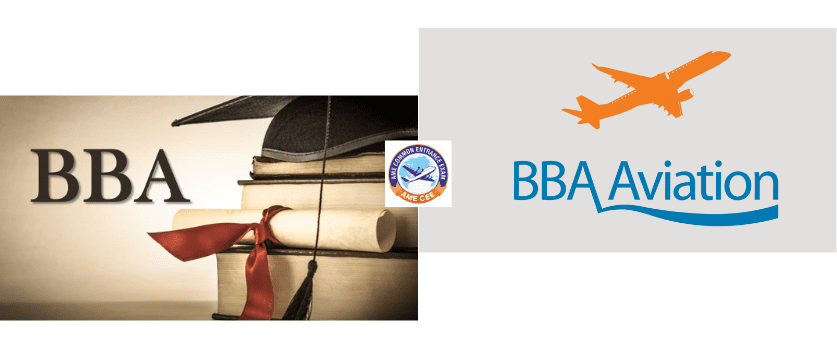The main difference between a BBA (Bachelor of Business Administration) and a BBA in Aviation lies in the focus of the program. While both programs provide a foundation in business administration, they have distinct specializations tailored to different career paths within the broader field of business. Here’s a breakdown of the key differences:
BBA (Bachelor of Business Administration)
General Business Focus
A BBA program offers a broad and general education in business administration. It covers various business disciplines, including marketing, finance, human resources, management, and operations.
Versatility
BBA graduates are equipped with a versatile skill set that can be applied across industries. They are prepared for roles in diverse areas of business and management.
Career Options
BBA graduates can pursue careers in areas such as marketing, finance, entrepreneurship, human resources, consulting, and general management.
Industry Relevance
BBA programs are designed to provide a foundational understanding of business principles, preparing graduates for entry-level positions in a wide range of industries.
BBA in Aviation (Bachelor of Business Administration in Aviation)
Aviation Industry Focus
BBA in Aviation is a specialized program that focuses specifically on the business aspects of the aviation industry. It covers topics related to airline management, airport operations, aviation logistics, air transport economics, and aviation law.
Aviation-Specific Courses
BBA in Aviation programs often includes courses that are tailored to the unique challenges and requirements of the aviation sector. Examples of specialized courses may include aviation safety, air cargo management, and aviation marketing.
Career in Aviation Management
Graduates of BBA in Aviation programs are prepared for management and administrative roles within the aviation industry. This may include working for airlines, airports, aviation logistics companies, and related organizations.
Regulatory Compliance
Given the highly regulated nature of the aviation industry, BBA in Aviation programs may include coursework on aviation regulations and compliance.
Global and Dynamic Industry
BBA in Aviation programs often emphasize the global and dynamic nature of the aviation industry, preparing graduates for careers that involve international perspectives and adaptation to industry changes.
In summary, while both BBA and BBA in Aviation programs provide a foundation in business administration, the latter is specifically tailored to the aviation industry. The choice between the two depends on individual career goals and interests. If you have a strong interest in aviation and aspire to work in management roles within the aviation sector, BBA in Aviation might be the more suitable choice. If you prefer a broader business education applicable to various industries, a general BBA might be a better fit.
To join the BBA In Aviation course, you could through AME CEE an entrance exam for aviation aspirants.


